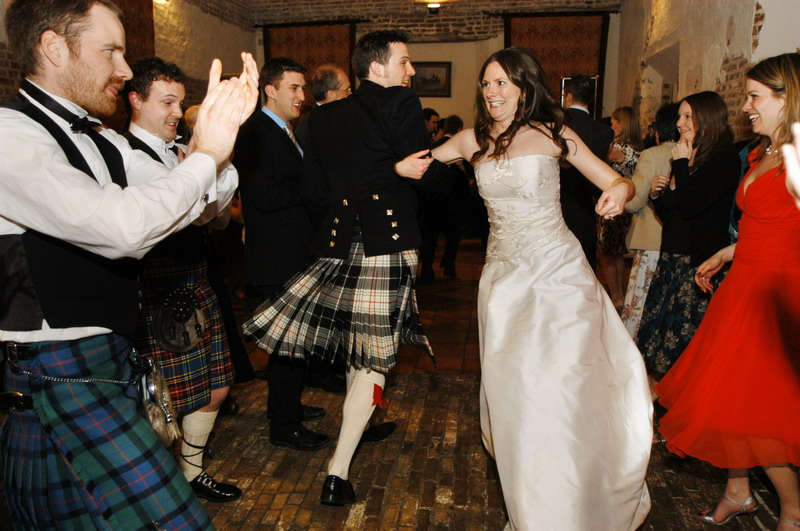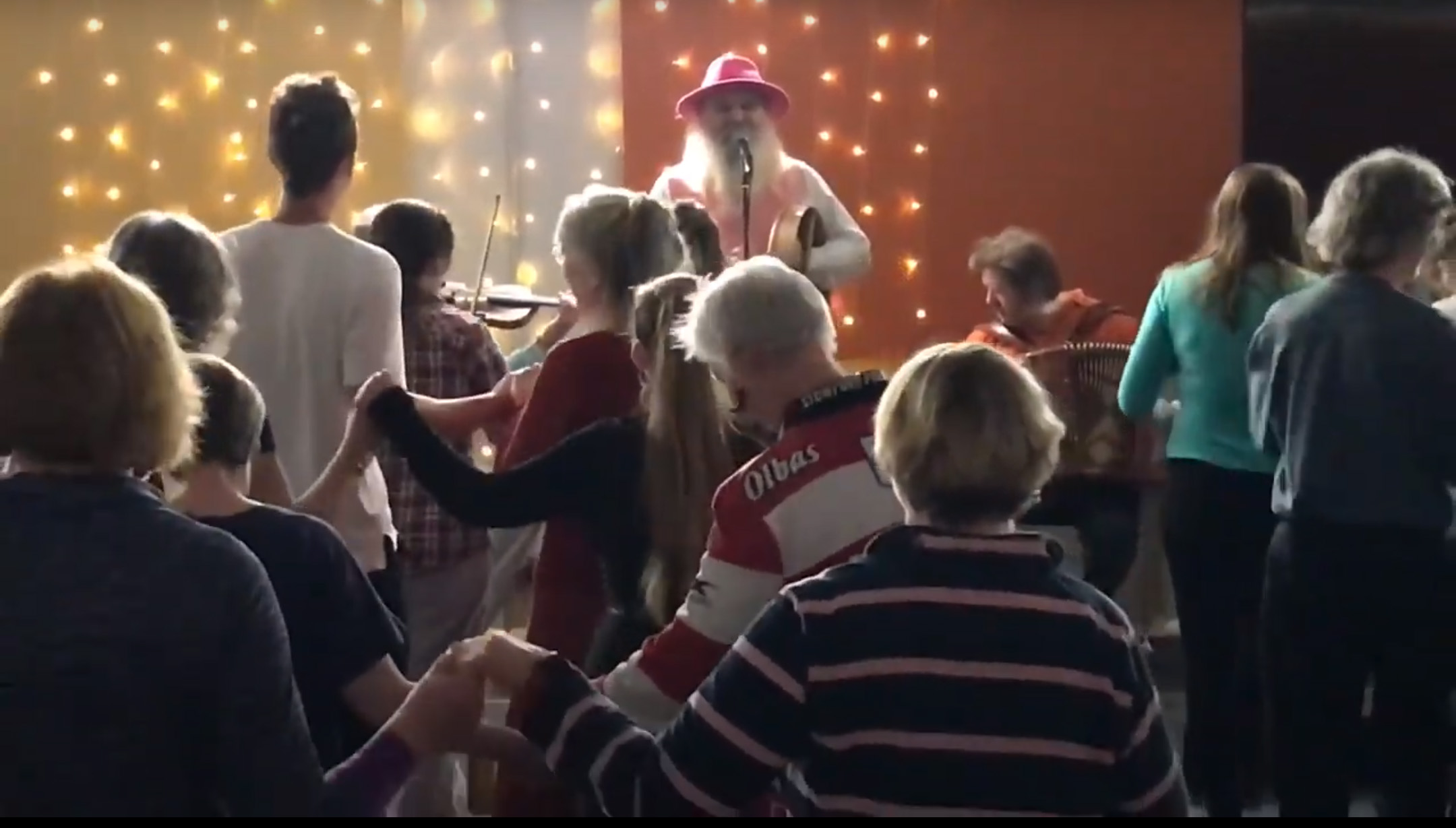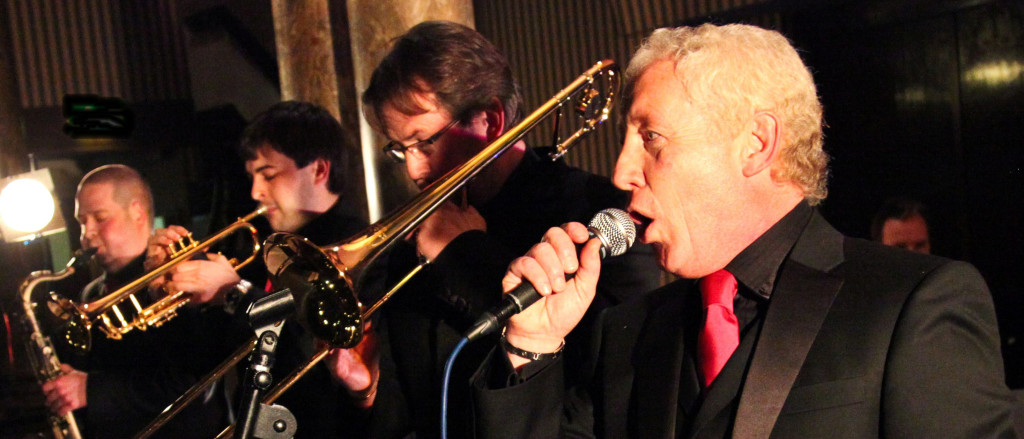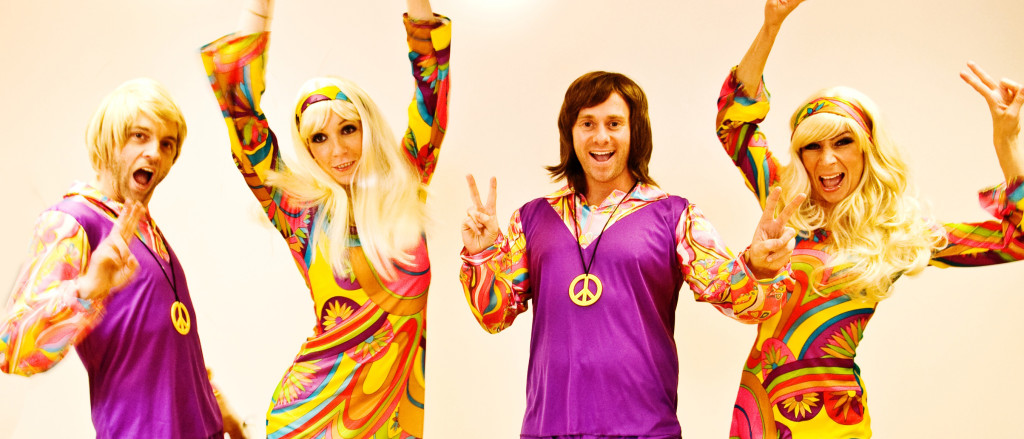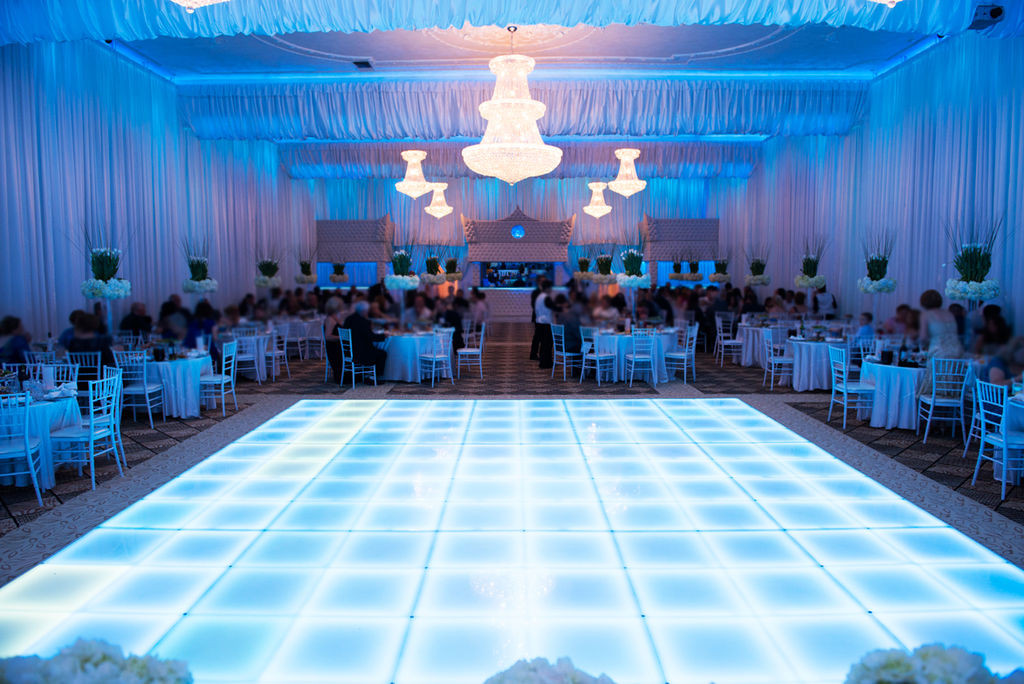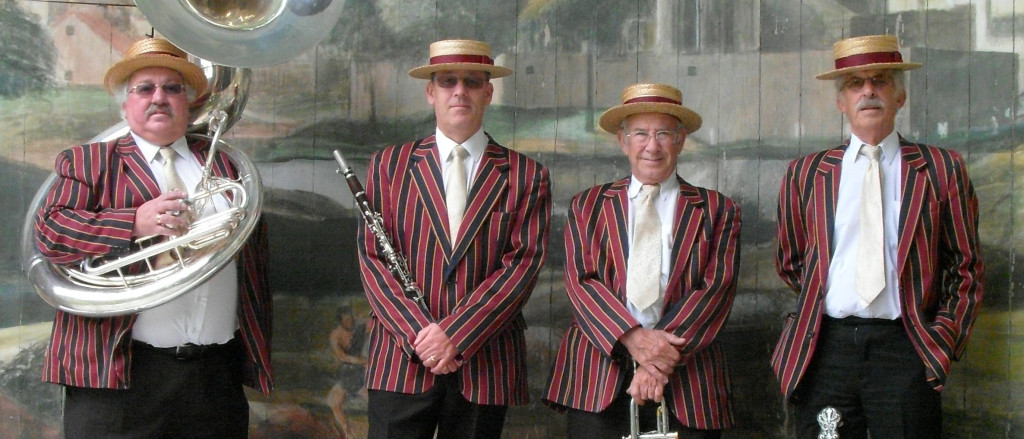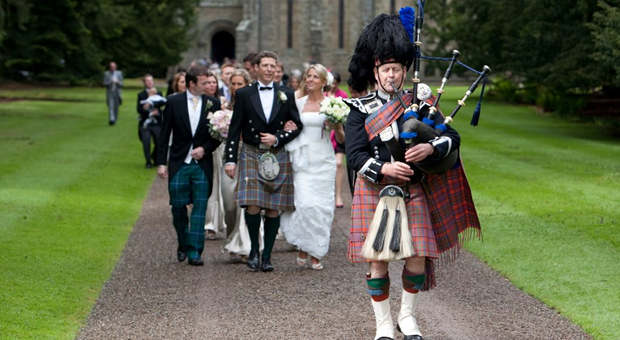Band Hire : Scotland, Ceilidh & Irish, Themed party music
All you need to know about Scottish Ceilidh
Ceilidh dancing is inclusive, interactive and great fun. At a typical wedding party, often involving two disparate groups of people who may never even have met before, it is an unbeatable icebreaker, overcoming potential barriers of nationality, language, dialect, gender and class at a stroke by promoting carefree, exhilarating fun with a strong binding element of teamwork.
Read More
